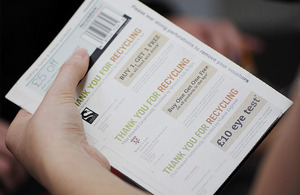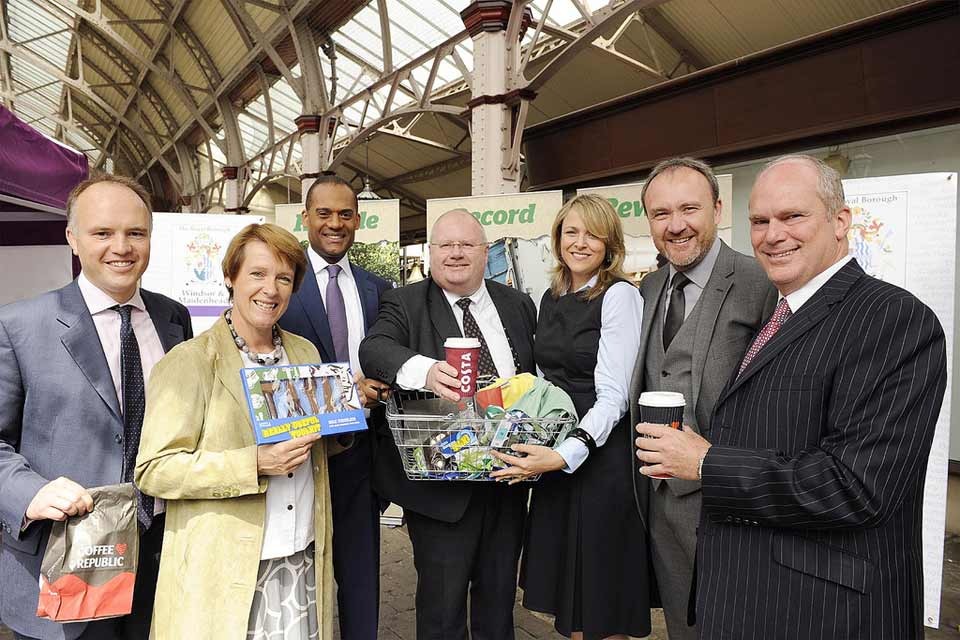Swapping bin bullies for recycling rewards
Plans to impose bin taxes have been scrapped by Cabinet ministers Eric Pickles and Caroline Spelman.

An example of the recycling reward vouchers
At the launch of the country’s first ever council-run recycling reward scheme, ministers dismissed ‘pay as you throw’ taxes because they would lead to more fly-tipping to dodge fines, saying people should be given incentives to recycle not punishments.
The voluntary reward scheme in Windsor and Maidenhead lets residents earn points for recycling to spend at local shops, from a free cup of coffee or a discounted eye test, to deals on spa treatments and local restaurants.

Eric Pickles and Caroline Spelman showing off some of the rewards that can be claimed through the recycling scheme.
Eric Pickles, Secretary of State for Communities and Local Government, said:
Rather than helping the environment, bin taxes would have fuelled fly-tipping and backyard burning. The best way to encourage people to recycle is not to punish families, but to encourage and reward them for going green. It’s time to rein in the bin bullies and work with local people to build greener and cleaner communities.
Caroline Spelman, Secretary of State for Environment, Food and Rural Affairs, said:
Windsor and Maidenhead Council have got it right by rewarding people for voluntarily doing the right thing not penalising them for doing the wrong thing - that is how we can change behaviour, improve the environment and get people to play their part in a Big Society.
That is why we are here today supporting the first ever council-run scheme in the UK to give residents reward points or cash vouchers for recycling.
60,000 households in Windsor and Maidenhead can volunteer to claim up to £135 worth of points a year from over 100 reward partners, at no cost to other residents. The scheme will also mean that less recyclable waste will go to expensive landfill, saving the council money.